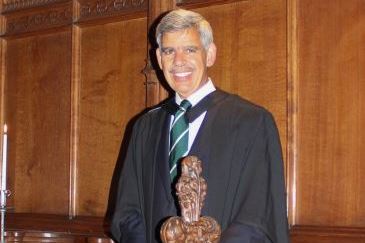Since the midsummer rally, the S&P 500 has dropped 7%. This is a sign that markets are starting to realize inflation isn’t cyclical, and top economist Mohamed El-Erian said investors won’t be able to force the Federal Reserve to make a dovish turn.
In an interview with CNBC on Friday, El-Erian said, “I don’t think there’s any doubt that the market has held the Fed hostage for a long time.”
When the Consumer Price Index for July showed a slightly lower inflation rate of 8.5%, stocks went up for a short time until Powell’s speech at Jackson Hole. In that speech, the head of the Fed made it clear that the Fed would not give up on its goal to lower prices.
El-Erian, chief economic adviser to Allianz and president of Queens’ College, Cambridge, said that message made the markets less optimistic, mostly because the Fed was sending more consistent messages to the markets.
“That consistency comes down to HFL: Higher for longer,” he said, referring to what Powell said at Jackson Hole about raising interest rates. “The market is taking it into account more and more the more Fed officials say it.”
El-Erian has been an outspoken critic of the Fed’s slow response to inflation. He has also said that the July rally came too soon. Since Jackson Hole, though, the economist has been more positive about Powell and the Fed. He says that Jackson Hole made investors realize that inflation is not just a small blip on the radar screen.
“The most important change is inflation. As soon as you get an inflation rate of 8.5%, the market can no longer hold the Fed hostage. I think the market is beginning to understand this. It’s not like it used to be. The equation has changed a lot because of inflation, “he added.
But the recent drop in stock prices doesn’t mean that the market doesn’t still hope the Fed will change its hawkish course. El-Erian pointed out that most of the drop has been in fixed income markets, and other markets will need to go down as well, especially since the Fed is considering another rate hike of 75 basis points in September.
Even though the economist thinks the Fed is headed in the right direction, he stressed that central bankers also needed to explain to the markets why their first inflation forecast was “so wrong” and make it clearer how it would make future forecasts.



